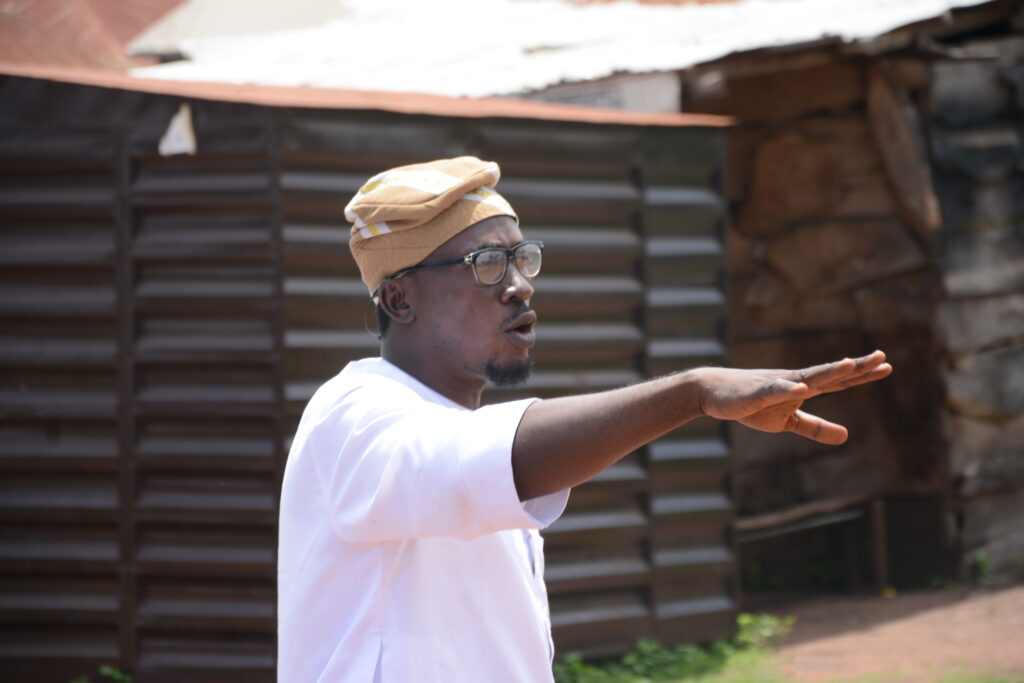
By Historian Musliyu Muhammed Lawal
Deep within the fabric of Yoruba society, the Olóbìnrin Ilè stood as a formidable institution that wove together tradition, discipline, and sisterhood among married women in a compound. More than just a social group, it was the backbone of domestic order, cultural preservation, and female empowerment in traditional Yoruba communities.
The institution’s hierarchy was based on marital seniority rather than age. Senior women, called Egbe Agba (nicknamed Oko gbemi – “my husband is alive”), held authority and wisdom, while the younger Egbe Omo Kéke (Omo lere – “child of grace”) embodied the energy of new brides. Leadership roles were assigned to respected female chiefs: Iya Lele handled general affairs, Iya Ipere settled disputes, and Iya Idi Aro oversaw domestic matters. The last five wives to marry formed the Egbe Oniwe Iyawo, tasked with household duties and orienting new brides.
The group also acted as a judicial body, especially for resolving conflicts among co-wives. After two failed settlement attempts and official warnings, disciplinary measures followed. One such punishment involved burning the clothes worn during a quarrel while women danced around the fire, singing songs to stir remorse.
For example:
Lead: Ojowu ja o kòsí kanga
Chorus: Alawode
After the clothes were burned, the offender carried the ashes to a refuse site, accompanied by clapping and singing. If the offense recurred, she was summoned before the Agaju (compound assembly) and asked to pound plain water in a mortar. Any spilled water triggered a beating by two elder women, intended to provoke remorse and tears.
Persistent misconduct led to expulsion—a grave dishonor. Reinstatement required heartfelt pleas from her mother and other female relatives.
Socially, the Egbe Oniwe Iyawo—the last five wives—welcomed new brides. The youngest among them bathed and dressed the bride, decorated her with osun (henna) and bebe idi (waist beads), prepared meals, and taught her the compound’s customs for five days until her ọ̀run (return visit) home. Songs played a vital role, even in financial matters.
The wife designated to keep money sprayed during events would reassure others through songs like:
Lead: Mi o mu l’ona apo
Chorus: l’ona apo
Lead: mi o mu l‘ona apo
Chorus: l’ona apò
Lead: Olowo naa wo owo mi re oo, mi o ọ mu l’ona apo
Chorus: l’ona apo
(repeated with variations)
Gossip was also addressed cleverly. Instead of direct confrontation, songs like:
Lead: Laki sokun ore Lagbaja,
Chorus: Ba wi taiwi lo lo le le ro…
were used to publicly shame offenders without naming them directly.
The Olobinrin ile institution fostered unity, discipline, and sisterhood, ensuring the harmony of the compound through structured traditions and communal values. Whenever they encounter any male family members who ignored them during their ceremony dance will received special song like:
Oobi a d’ele yin
E ni afe la d’ele re
Ooobi a d’ele yin
And for any members with arrogance tendencies either knowingly or unknowningly once she is challenged and she does give any signs of remorse she shall be punished with song line like:
I ba ga I ba ju oke lo
Abosi ni o je o t’Egbe
I baga iba ju oke lo
Abosi ni o je o t’Egbe
Admittance into the Olobinrin Ile follows a set ritual. After being part of the bride’s wedding, her mother-in-law formally introduces her to the women’s group. Her mother must also prepare traditional dishes in specified quantities, known as N kan Omobinrin Ile. Once the meal is shared, the bride is presented at the compound square (aganju) to receive blessings from the elders, followed by a ceremonial dance.
The Egbe Obinrin Ile plays a crucial social and cultural role in Yoruba compound life, contributing significantly to community stability and continuity.




![[PHOTOS] MOK Movement Disburses ₦300,000, Distributes Food Items to the Aged in Offa During Weekly Empowerment Programme](https://newsbulletin.com.ng/wp-content/uploads/2025/10/FB_IMG_1760379043455-300x300.jpg)




